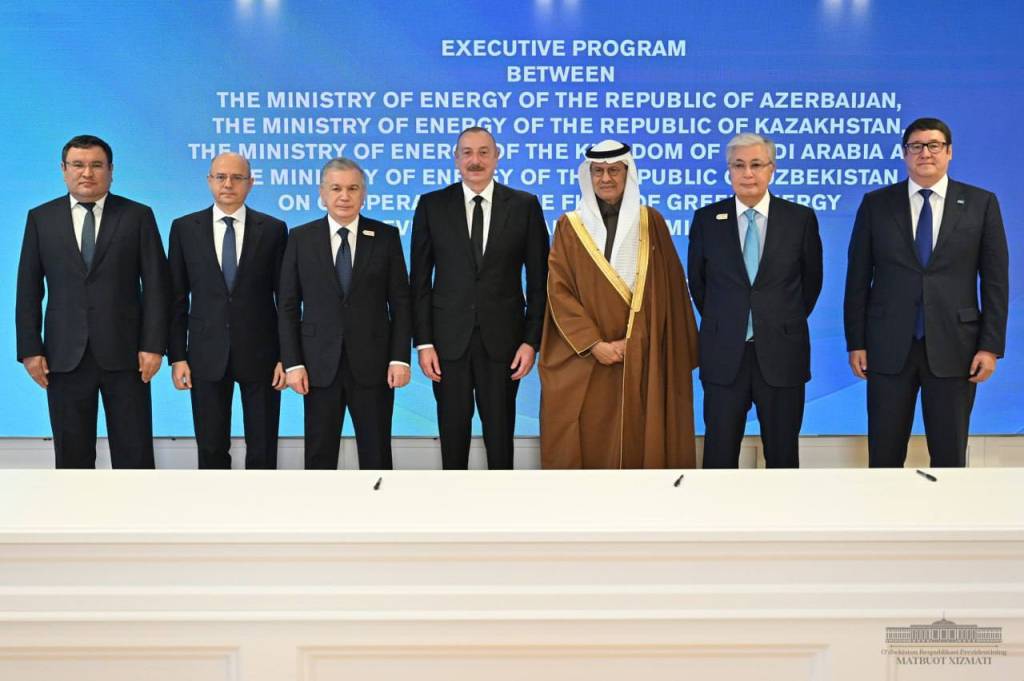
On November 13, as part of the COP29 Summit, the Strategic Partnership Agreement on developing and transferring green energy between Uzbekistan, Kazakhstan, and Azerbaijan was signed.
Addressing the event, the President of the Republic of Uzbekistan Shavkat Mirziyoyev emphasized that renewable energy is not an economic goal, but a contribution to the future, resulting from our sense of responsibility to future generations.
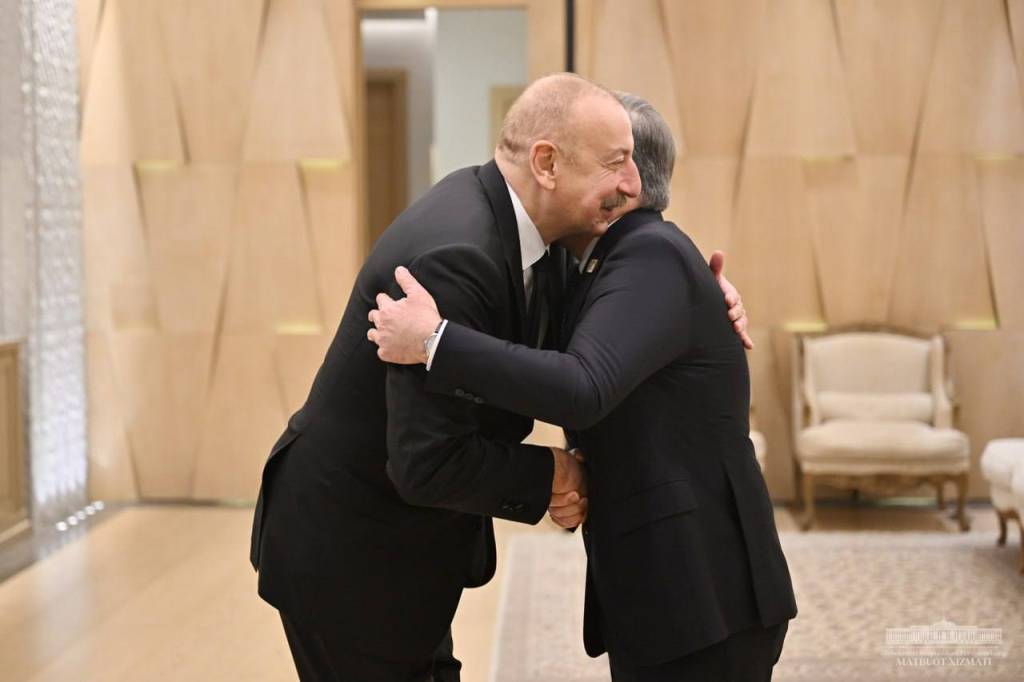
The environmental significance of the project was emphasized. The energy that will be transmitted is wind and solar energy, a renewable and clean source that will mitigate the impact on the climate.
Thus, the parties support joint efforts to protect the climate within the framework of the Paris Agreement and the Sustainable Development Goals.
It was emphasized that our countries, possessing significant renewable energy resources, can significantly contribute to the global energy transition.
In this context, the President of Uzbekistan separately focused on the key aspects of the large-scale work in this direction.
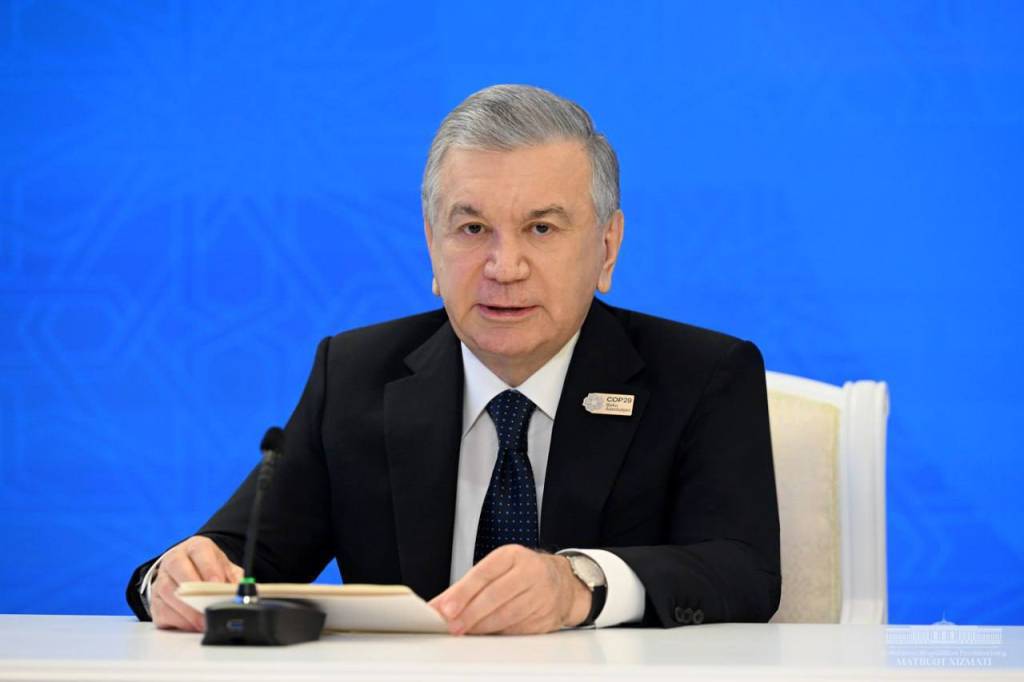
An extensive program for the accelerated development of green energy has been adopted. About two gigawatts of solar and wind power generation capacity is introduced in Uzbekistan annually.
In addition, an additional 2.6 gigawatts of renewable generation and 300-megawatt energy storage systems will be connected to the grid by the end of this year.
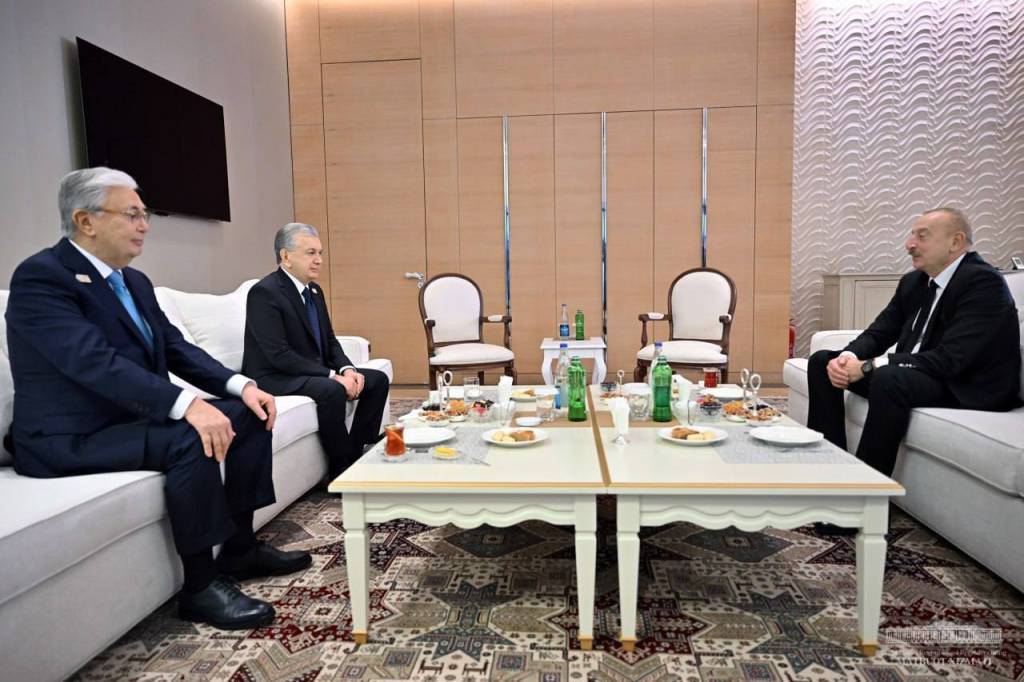
By 2030, it is planned to increase the share of renewable energy sources to 40 percent and create energy storage systems for 4.2 gigawatts.
Confidence was expressed that all its participants would feel the economic effect of implementing the project.
Tens of thousands of jobs will be created, energy infrastructure will be developed, technological and business ties will expand. As a result, the standard of living of the population will increase.
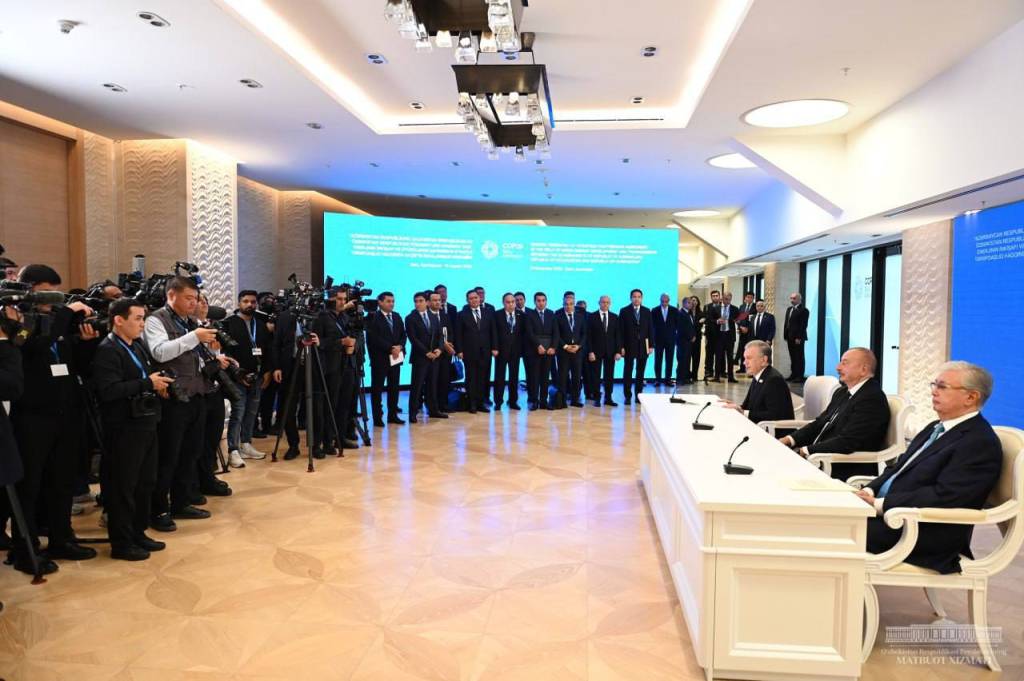
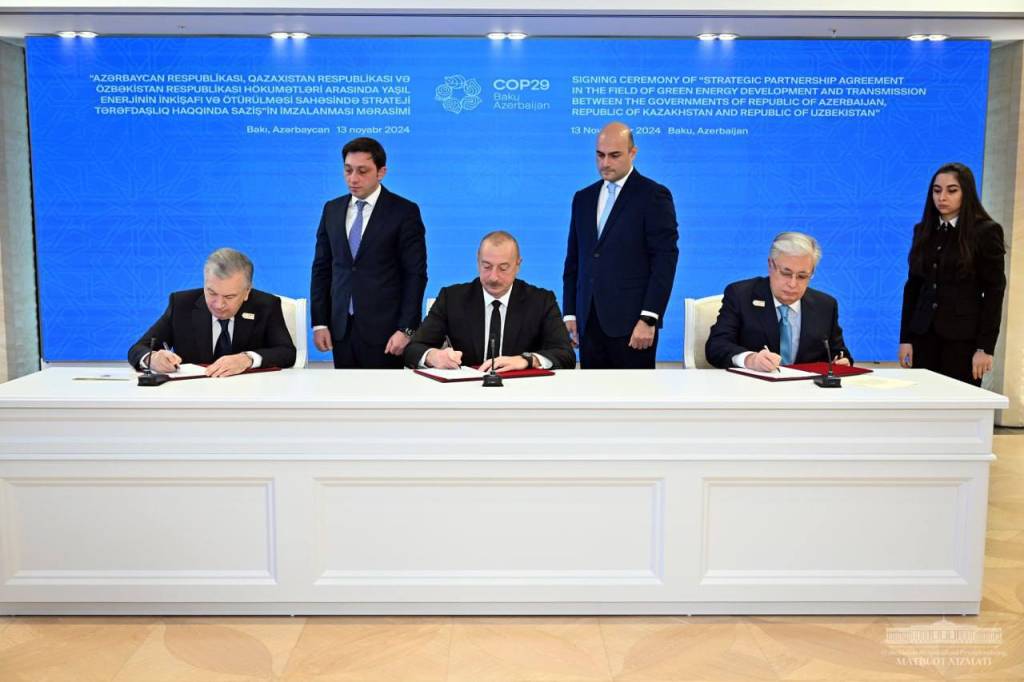
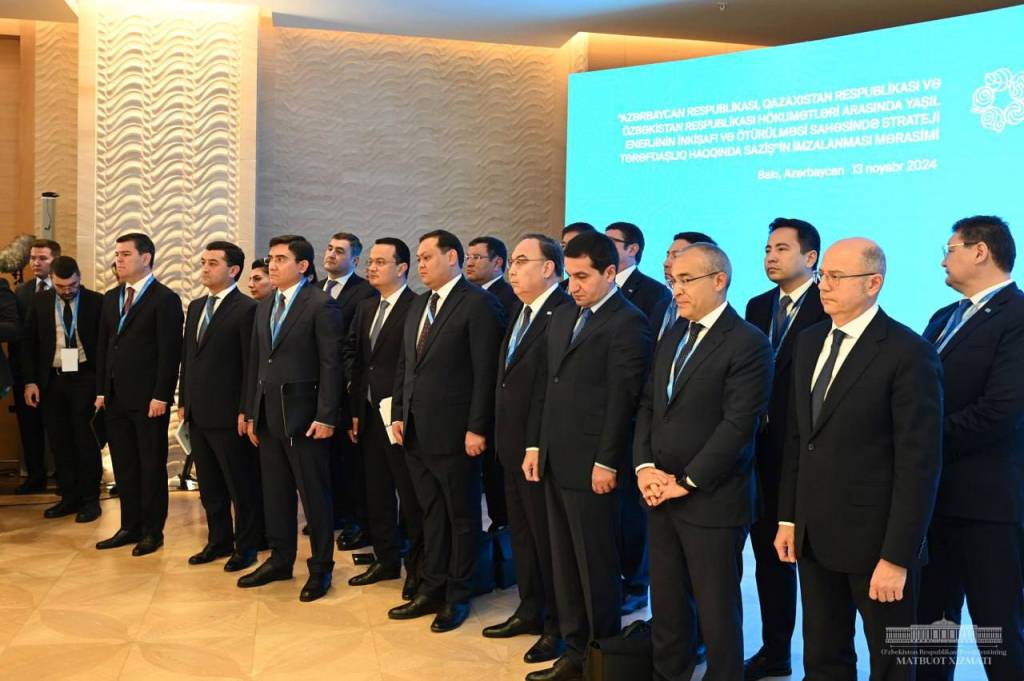
The importance of accelerating the implementation of the project, including the creation of a joint venture, the development and approval of technical documentation, and other procedures, was noted.
In conclusion, the President of Uzbekistan confirmed Uzbekistan’s commitment to the joint implementation of this regional project.
UzA








